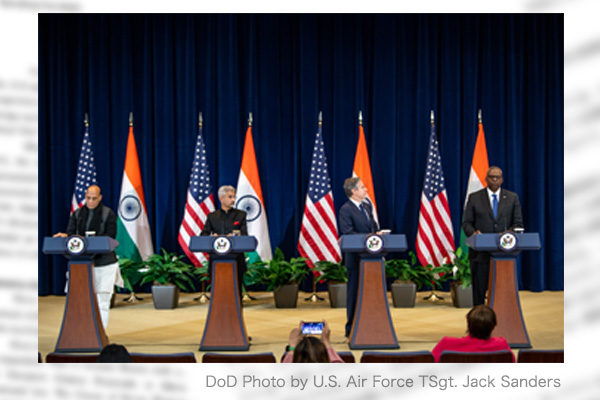In the conflict between the West and Russia over the Russian invasion of Ukraine, much of the non-Western world has chosen to pursue an independent line. In fact, the world’s major non-Western democracies — from South Africa and Brazil to Indonesia and India — have all chartered a course of neutrality.
U.S. President Joe Biden’s administration, however, has especially bristled at India for abstaining from the multiple UN votes on Russia. Because India is the world’s largest democracy, its neutrality undermines the Western narrative that the conflict symbolizes a struggle between democracies and autocracies.
Sanction on Russia, silence on China
Biden has framed the Ukraine war as a global “battle between democracy and autocracy, between liberty and repression, between a rules-based order and one governed by brute force.” Never mind that Ukrainian President Volodymyr Zelensky’s regime is no less autocratic than Putin’s.
The fact is that whichever side the U.S. armed over the years was invariably portrayed at that time as “fighting for freedom” — from the Afghanistan-centered anti-Soviet Islamist guerrillas (from which Al Qaeda and the Taliban evolved) to Syria’s anti-Bashar Assad jihadists (who gave birth to ISIS). Biden’s “new battle for freedom,” as he calls it, has led to a deluge of sophisticated Western weapons pouring into Ukraine and increased the risks of a wider conflict.
Here’s the paradox: At a time when India confronts China’s nearly two-year-long border aggression, including Beijing’s threat to unleash a full-scale war, Biden has refused to open his mouth on that aggression. In fact, equating the victim with the aggressor, his State Department has urged India and China to find “a peaceful resolution of the border disputes.” In fact, no current head of a Western government has condemned China’s aggression against India or even urged Beijing to reverse its massive military buildup along the Himalayan frontier.
On Ukraine, the US and India have bridged some of their differences by holding “two-plus-two” meetings between their foreign and defense ministers in Washington on April 11, along with an hour-long virtual discussion between Biden and Indian Prime Minister Narendra Modi. In the discussions, the U.S. side focused on winning India’s compliance with the Western sanctions on Moscow, while India emphasized it was imperative to counter China’s border aggression without affecting its close relationships with America (India’s top economic partner) and Russia (India’s No.1 defense partner).
Accelerating U.S. relative decline
India is deeply concerned that China is likely to emerge as the main winner from the U.S.-led sanctions on Moscow, including becoming Russia’s banker and building an energy safety net through greater access to Russian energy resources via secure, land-based pipelines. By aiding the further rise of an expansionist China, the U.S. will speed up its relative decline.
But the main brunt of the rise of a more powerful and aggressive China will be borne by its neighbors, especially India. The U.S., after all, is located far from China. Unlike Japan and Australia, which are under the U.S. security (and nuclear) umbrella, India has to deal with China on its own.
Biden’s policies toward India’s neighbors are already compounding New Delhi’s regional security challenges. After surrendering Afghanistan to Pakistan-sponsored terrorists and pushing Myanmar closer to China through U.S. sanctions, Biden is appeasing China, including downsizing U.S. Justice Department’s "China Initiative" to combat Chinese covert activities and exempting from Trump-era tariffs about two-thirds of Chinese products. Biden has also let China off the hook over its COVID-19 coverup.
The current international crisis over Ukraine represents the most dangerous period since the end of the Cold War. The advent of a new U.S.-Russia Cold War promises to make India’s neutrality more challenging.
Brahma Chellaney is a professor of strategic studies at Center for Policy Research, New Delhi.


